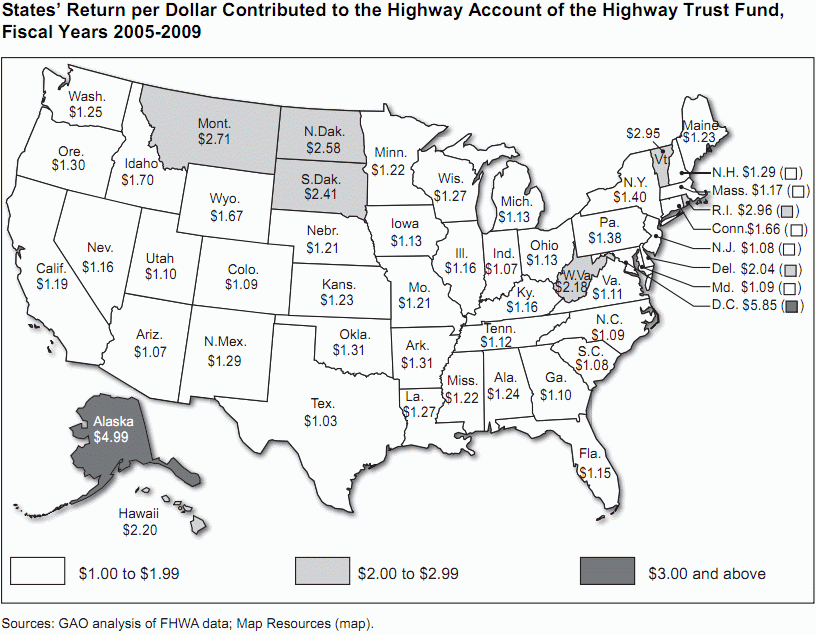The federal gasoline taxA tax is a mandatory payment or charge collected by local, state, and national governments from individuals or businesses to cover the costs of general government services, goods, and activities. of 18.4 cents per gallon primarily goes into the federal Highway Trust Fund to support federal transportation spending. This year (Fiscal Year 2011), the feds will spend $79.5 billion on transportation but transportation excise taxes (chiefly that gasoline tax and airline taxes) will raise only $37.5 billion. The gap is covered by increasing the national debt.
Two notable solutions have been offered to this ongoing and rising disparity: the Bowles-Simpson fiscal reform commission urged that gasoline taxes rise to cover transportation spending, and Rep. Ron Paul’s proposed budget slashes transportation spending to the level funded by its user taxes.
More information is provided by a new study by the Government Accountability Office (GAO) – PDF, looking just at highway spending. They found that every U.S. state “gets” more in federal highway funding than “they” pay in federal gasoline taxes. While this ratio is especially high for nine states ($2.00+ in highway spending for every $1.00 in gasoline taxes paid), no state is a “donor” state. In a way, we’re all donor states due to the rising national debt to cover unfunded highway spending.
Share this article